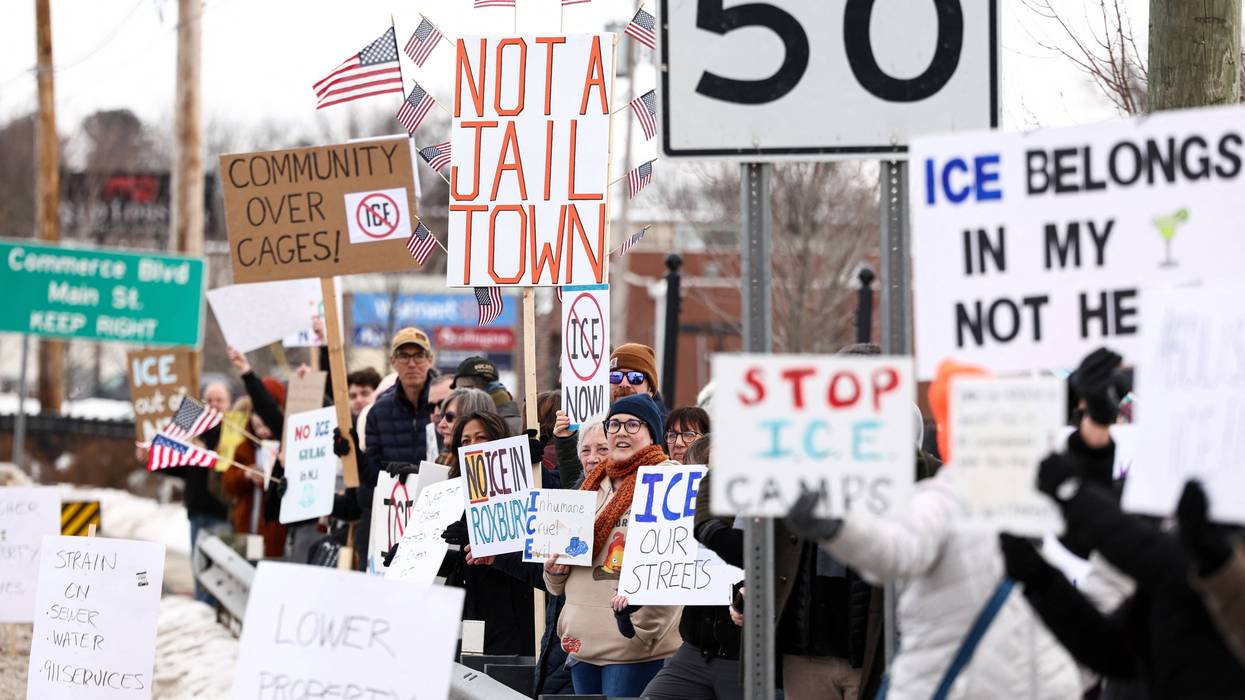The big news from Japanese Prime Minister Yoshihiko Noda's state visit was supposed to be that Japan would join the Trans-Pacific Partnership (TPP) trade agreement talks. The Obama administration has made the TPP a centerpiece of its heightened economic and security "Pacific Century" strategy. But the TPP, which President Barack Obama seeks to finish this year, does not currently include the major Pacific Rim nations - Japan, China, Russia and Indonesia.
Noda announced at November's Asia Pacific Economic Cooperation (APEC) summit in Hawaii that he wanted in. Until last week, the formal announcement was to be the cornerstone of Noda's Washington visit. What happened?
It might have been the 300 Japanese lawmakers- many from Noda's own political party - who passed a resolution in the Dietthis week demanding that Noda not announce Japan's participation in the TPP. Or, perhaps it was the latest mass demonstration this Wednesday, when thousands of anti-TPP protesters - doctors, lawyers, students, consumer activists, unionists - filled the streets of Tokyo. "No TPP for Japan or the World!" declared their signs, as they streamed by bookstores packed with anti-TPP books. Noda's advance team was treated to a full page Washington Post ad run by a coalition of Japan's powerful consumer and farm groups urging the American public to "Say No to TPP."
This strong opposition to the TPP summarily was dismissed by The Wall Street Journal as "Lost in Translation" -an opinion that not only underestimates the opposition to the trade deal around the world, but spotlights the folly of having the TPP as the leading edge of a U.S. "Pacific Century" strategy.
Noda's unequivocal support for the TPP has generated a mighty backlash in Japan. Negotiations have occurred for several years under conditions of extreme secrecy, which have allowed the pact's corporate and government proponents to brand it as a trade deal that would expand exports. But when senior members of Noda's own political party began exploring the actual content of the TPP, alarm bells rang. The proposal does not stand up to scrutiny.
Of the 26 proposed chapters, few cover trade per se. In short order, Japan's public health advocates, doctors and nurses learned of the proposals that would allow U.S. pharmaceutical giants to challenge Japan's medicine pricing regime, which has cut healthcare costs in Japan. The powerful network of homemaker consumer co-ops learned of the limits on food safety and consumer labeling. The Bar Association and lawmakers learned of the pact's provisions that would allow foreign corporations to skirt domestic courts and directly attack domestic financial regulation, health and land-use policies before foreign tribunals. These venues are staffed by private-sector lawyers empowered to order payment of taxpayer funds for policies that undermine investors "expected future profits." Japanese blogs spread the word about the copyright provisions that would impose SOPA-like rules.
In sum, the TPP, like Dracula, does not stand up well to sunshine. Just days before Noda's Washington trip, members of his administration conceded that the prime minister would not announce Japan's intention to enter the TPP. According to The Mainichi Newspaper, leaders in the Japanese government described the decision as coming while"Noda hopes to prevent the rift within his Democratic Party of Japan from widening."In forcing the prime minister to change his position, the Japanese opposition groups scored a major victory. And, the political activism in Japan underscores how politically contentious and controversial the TPP agreement is - even if not yet here in the United States.
What is the TPP and why is there such opposition to it?
Under the framework now being negotiated, each signatory country would be obliged to bring its existing and future national, state and local laws and policies into compliance with expansive norms covering numerous non-trade policies. This includes limits on financial regulation, government procurement policy, medicine patent and pricing rules, energy and healthcare policies, copyright standards, natural resource management, food safety and labeling and more.
This agenda is not new. It repeatedly has been rejected - in the derailed 34-nation Free Trade Area of the Americas expansion of the North American Free Trade Agreement (NAFTA) to 34 Western Hemisphere nations, the original World Trade Organization Doha Round agenda and the APEC Free Trade Agreement.
Why is the Obama administration pushing the same 1990s "Washington Consensus" package rebranded as a "21st Century Trade Agreement"? Why are Obama administration "trade" negotiators pushing proposals that would result in a ban on Buy American procurement policies and an expansion of investor rules that promote offshoring, while the president is touring the nation touting his agenda to revitalize American manufacturing? The 600 official U.S. trade advisors who represent corporate interests have a lot to do with that. This is their agenda.
But few people know what is really being discussed. As trade lawyer Gary Horlick, a former U.S trade official with four decades in the game, recently noted: "This is the least transparent trade negotiation I have ever seen." While the 600-plus business representatives serving as U.S. trade advisors have full access to an array of draft texts already completed and an inside role in the process, the press, public and congressional staff are locked out. Indeed, draft negotiating texts are classified, and the "most transparent administration in history" signed a special pact not to released texts until four years after a deal is done or abandoned.
Despite the fact that the TPP is being negotiated in unprecedented secrecy, details have begun to emerge. And so has opposition to some of the most extreme provisions - and not just in Japan. The Australian government recently announced that it refuses to be bound to the "investor-state" private corporate enforcement system. Under these rules, attacks against an array of non-trade laws also could be launched directly by any "investor" that happens to be incorporated in any one of the TPP countries. These cases would be heard by three-person tribunals of private-sector attorneys, who often rotate between representing corporations and serving as "judges." They would be empowered to order payment of unlimited amounts of taxpayer funds to investors by governments for any government policy the investor claims violates its expected future profits. Australia now is defending its cigarette plain packaging law against such an investor-state attack.
If this description of the proposed TPP sounds far-fetched, consider the consequences of the other "trade" pacts on which TPP is based:
- More than $350 millionin compensation already has been paid out to foreign investors in a series of investor-state cases under NAFTA-style deals. This includes attacks on natural resource policies, environmental protection, and health and safety measures, and more. In fact, of the more than $12.5 billion in the 17 pending claims under NAFTA-style deals, all relate to environmental, public health and transportation policy - not traditional trade issues.
- Canadian banksare threatening key aspects of the Dodd-Frank financial reregulation package as violating NAFTA.
- Lots of U.S. stimulus money leaked offshore because of limits on Buy American procurement preferences already established in past trade pacts.
- In the last few months, the WTO struck down U.S. dolphin-safe tuna and country-of-origin meat labeling laws, as well as the ban on candy-flavored cigarettes, which is aimed at curbing youth smoking, claiming they violated U.S. "trade" obligations.
The Dangerous U.S. Politics of the TPP:
Among few areas of agreement across parties and region is opposition to more of the same trade pacts. Majorities of Democrats, Republicans and Independents consider our past trade pacts to be damaging to their families and to the nation.The TPP is a political landmine. The pact's core provisions directly contradict Obama's growing focus on American jobs and manufacturing. The idea of allowing U.S. laws to be challenged in secret foreign tribunals is a problem for Mitt Romney - if he is opposed to the federal government interfering in state's affairs, how about United Nations and World Bank tribunals? (Cue the tea party!) At the moment, most Americans have no idea what the "TPP" stands for. But beginning May 8, the next round of closed-door TPP talks will begin in Dallas. The negotiations will garner press coverage, educating Americans about the TPP and will provide a glimpse of what's in store if we don't stop the TPP.



